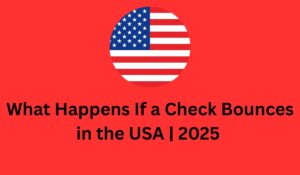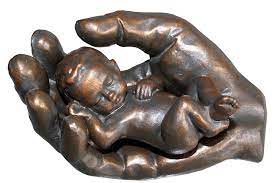Introduction

What Happens If a Check Bounces in the USA | Bounced checks, also known as returned checks or bad checks, are more than just a financial inconvenience. In the United States, writing or receiving a check that doesn’t clear can lead to bank fees, civil claims, or even criminal charges. Whether you’re an individual or a business owner, understanding what happens when a check bounces can help you avoid legal pitfalls and financial loss.
What Does It Mean When a Check Bounces?
When a check “bounces,” it means the bank has refused to honor it due to insufficient funds in the issuer’s account. The check is returned unpaid, and both the payer and
the recipient may face consequences.
Common reasons checks bounce:
-
Insufficient funds
-
Closed accounts
-
Incorrect account information
-
Post-dated check presented early
Immediate Bank-Level Consequences
-
Non-Sufficient Funds (NSF) Fee
Most banks charge an NSF fee ranging from $25 to $40 for each bounced check. -
Overdraft Fees
If the account has overdraft protection, the bank might cover the check but still charge an overdraft fee. -
Negative Bank Record
Repeated offenses may lead to account closure and reporting to databases like ChexSystems, making it hard to open accounts elsewhere.
For the Check Writer (Issuer)
The check writer may face the following:
-
Bank fees
-
Reputational damage
-
Collection calls or demand letters
-
Legal action (civil or criminal)
Many states allow payees to demand repayment within a specific period (usually 7–30 days). If the writer fails to respond, the payee may pursue legal remedies.
For the Recipient (Payee)
The person or business who received the bounced check may:
-
Incur deposit return fees
-
Miss payment deadlines or payroll commitments
-
Need to recover the money through legal means
Some states allow the payee to collect additional damages, such as double or triple the amount of the check.
Steps the Recipient Can Take
-
Notify the Check Writer
Politely inform them that their check was returned. They may not be aware of the issue. -
Issue a Formal Demand Letter
If informal efforts fail, send a written demand giving a deadline for repayment (state laws often dictate format and timing). -
File in Small Claims Court
Many states permit lawsuits for bounced checks in small claims court, with maximum limits varying (e.g., $10,000 in California, $5,000 in Texas). -
File a Police Report (if fraud is suspected)
If you suspect the check was intentionally written with no funds, it may constitute check fraud—a criminal offense.
Legal Consequences for the Check Writer
Civil Penalties
-
Original check amount
-
Court costs
-
Attorney fees
-
Damages (up to 3x the check amount in some states)
Criminal Charges
If fraud or repeated offenses are involved, the check writer may be charged with:
-
Misdemeanor (usually under $500–$1,000)
-
Felony (for larger amounts or habitual offenses)
-
Jail sentences can range from a few months to multiple years.
How States Differ
While the federal government provides a framework, each U.S. state has its own laws regarding bounced checks. Key differences include:
-
Thresholds for felony charges
-
Time allowed for repayment
-
Penalties and damages allowed
For example:
-
In California, writing a bad check under $950 is a misdemeanor.
-
In Florida, a bounced check over $150 may result in criminal charges.
-
In New York, the payee must send a certified letter and allow 10 days for repayment before filing a complaint.
What To Do If You Bounce a Check
If you’re the person who wrote the bounced check, take immediate action:
-
Apologize and explain the situation to the payee.
-
Deposit sufficient funds into your account.
-
Pay any bank and merchant fees promptly.
-
Respond to any legal notice
-
s to avoid further consequences.
-
Consult an attorney if you receive a court summons or criminal complaint.
Impact on Credit and Financial Standing
Though bounced checks don’t directly affect your credit score, they can damage your financial standing in other ways:
-
Reported to ChexSystems, making it harder to open new accounts
-
Court judgments may appear on your public record
-
Inability to secure business deals if you develop a reputation for unreliable payments
How to Avoid Bouncing Checks
-
Monitor your bank balance regu
-
larly
-
Use overdraft protection
-
Avoid writing post-dated checks
-
Use cashier’s checks or money orders for large or critical payments
-
Communicate early if you’re facing financial hardship
Conclusion
In the United States, a bounced check can quickly spiral from an accidental oversight to a legal and financial nightmare. Both check writers and recipients must understand the potential consequences, legal rights, and preventive steps. While a single bounced check might be resolved amicably, repeated incidents or fraudulent intent can lead to jail time, lawsuits, and long-term reputational harm.
Stay proactive, know your state laws, and treat every check like a binding contract.



